Top Healthcare Apps Trends to follow in 2026
28 Nov 25 

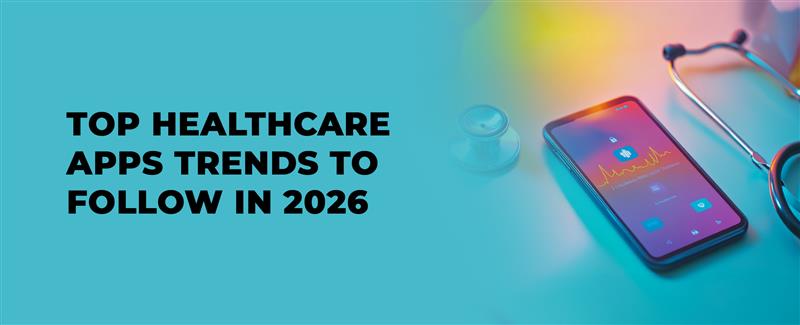
Healthcare apps are changing how patients receive care and how doctors work. Patients can now consult doctors remotely, get personalized treatment plans, and access their medical records securely. These changes are driven by new technologies that make healthcare more accessible and effective.
This article covers the main technology trends shaping healthcare apps in 2025 and beyond.
Key Statistics
- The global mobile health market is expected to reach $135.50 billion in 2025 and $625.62 billion by 2030. (Source: Research and Markets)
- The healthcare mobile app market was valued at $114.17 billion in 2024 and will reach $1,070.58 billion by 2030. (Source: Grand View Research)
- 65% of U.S. adults want AI used for cancer screening, with 38% believing AI can improve healthcare results. (Source: Pew Research Center)
- The top three health app categories in 2025 are:
- Fitness and exercise (43%)
- Nutrition and diet (34%)
- Stress and mental wellbeing (31%) (Source: Statista)
- Over 96,000 health and medical apps are now available on Google Play and AppStore. (Source: Statista)
- 79% of healthcare organizations use AI in 2025, mainly for diagnosis and administrative work. (Source: Healthcare IT Statistics)
AR and VR in Healthcare
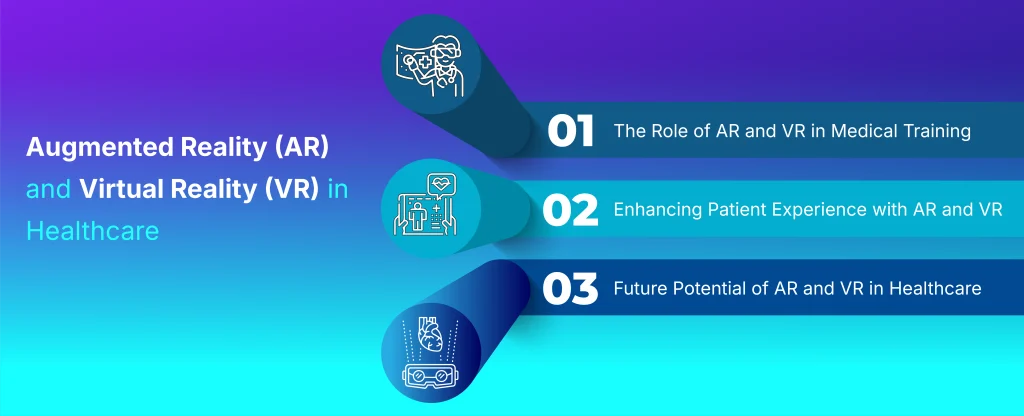
Training Medical Students
Virtual Reality (VR) lets medical students practice surgeries in a safe environment before working on real patients. Augmented Reality (AR) shows digital information overlaid on the real world, helping surgeons see detailed anatomy during operations.
The AR and VR healthcare market reached $4.04 billion in 2025 and is expected to hit $18.38 billion by 2034.
Improving Patient Care
AR apps like AccuVein help nurses find veins more easily for injections, reducing patient discomfort. VR helps manage pain and anxiety during treatments. For example, the Snow World app distracts burn patients during painful procedures, effectively reducing their pain.
40% of healthcare providers now use VR for treating patients and training staff.
What’s Next
AR and VR will play a bigger role in remote patient monitoring and telemedicine. Virtual rehabilitation programs are already helping patients recover from COVID-19 and manage chronic conditions.
The main challenge is cost. Implementing these technologies alongside existing systems like EHR requires significant investment.
AI in Healthcare Apps
Better Diagnosis
AI helps doctors diagnose diseases more accurately. AI can analyze medical images like X-rays and MRIs to detect tumors and other conditions, often spotting issues that humans might miss. AI also predicts patient outcomes, helping doctors intervene earlier.
AI tools could increase healthcare worker productivity by 40%. The global AI in healthcare market will grow from $20.9 billion in 2024 to $148.4 billion by 2029.
Personalized Treatment
AI analyzes patient data including genetic information and medical history to create treatment plans tailored to each person. This makes treatments more effective and reduces side effects.
Challenges
The main concerns are data privacy and integrating AI into existing hospital systems. Healthcare organizations must ensure patient information stays secure while meeting ethical standards.
Large Language Models are improving diagnosis accuracy, simplifying clinical workflows, and helping patients better understand their health.
Connected Medical Devices (IoMT)
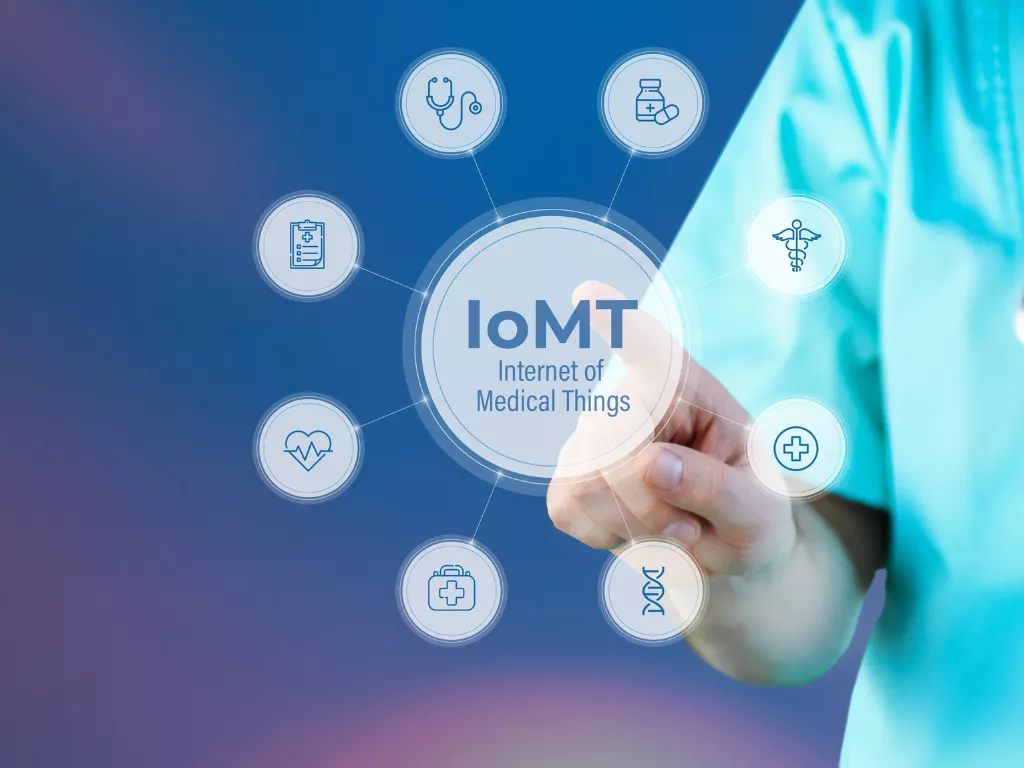
Remote Patient Monitoring
Connected devices like wearable sensors and smart implants track patient vital signs continuously. This data is sent to healthcare systems automatically, allowing doctors to spot problems early and intervene when needed.
6 out of 10 people who use health apps check them daily.
Better Hospital Efficiency
Connected devices collect and analyze data automatically, reducing manual work for healthcare staff. This helps doctors make faster, better decisions.
75% of hospitals now offer mobile apps, up significantly from previous years.
Lower Costs
Remote monitoring reduces the need for in-person visits. Catching health issues early through continuous monitoring leads to faster treatment and lower overall healthcare costs.
The telehealth devices market is expected to reach $590.9 billion by 2032.
Blockchain for Data Security
Protecting Patient Data
Blockchain creates secure, unchangeable records of patient data. Information is distributed across a network, making it extremely difficult for hackers to access or alter records.
The blockchain healthcare market, valued at $0.76 billion in 2022, will reach $14.25 billion by 2032.
Preventing Data Breaches
As more health records go digital, the risk of data breaches increases. Blockchain splits patient data across multiple locations, making it nearly impossible to steal without detection.
Real-World Uses
Healthcare organizations use blockchain to manage patient consent for data sharing and track health records securely. This ensures compliance with privacy laws and makes patient data available wherever treatment is needed.
Big Data in Healthcare
Better Patient Outcomes
Big Data combines information from multiple sources like genetic tests and electronic health records. Analyzing these large datasets helps doctors spot patterns and make more informed decisions about patient care.
The Big Data analytics market will reach $650 billion by 2029.
Predicting Disease
By analyzing historical and current data, healthcare providers can predict health problems before they become serious. This is especially useful for chronic diseases like diabetes, cancer, and heart disease. Early detection allows for earlier treatment and better outcomes.
Customized Treatment Plans
Big Data enables personalized medicine by creating treatment plans based on each patient’s medical history, genetics, and lifestyle. These optimized treatments are more effective, have fewer side effects, and cost less.
Also read 10 Telemedicine App Ideas That Will Revolutionize 2024
Conclusion
Healthcare is at a turning point. AR, VR, AI, connected devices, blockchain, and Big Data are making healthcare more precise, efficient, and secure.
With the mobile health market expected to reach $625.62 billion by 2030 and the healthcare app market hitting $1,070.58 billion by 2030, opportunities for innovation are massive.
These technologies lead to better patient outcomes, more efficient clinical workflows, and wider access to quality care.
The future of healthcare is personalized treatment plans based on individual genetics and medical history. It’s real-time data guiding doctor decisions. It’s automation handling administrative tasks so doctors can spend more time with patients.
This future is already taking shape. The question is whether you’ll be part of building it.
- Agentic AI1
- Android Development3
- Artificial Intelligence33
- Classified App3
- Custom App Development5
- Digital Transformation12
- Doctor Appointment Booking App14
- Dropshipping1
- Ecommerce Apps40
- Education Apps2
- Fintech-Apps37
- Fitness App4
- Flutter4
- Flutter Apps20
- Food Delivery App5
- Grocery App Development1
- Grocery Apps3
- Health Care10
- IoT2
- Loyalty Programs9
- Matrimony Apps1
- Microsoft1
- Mobile App Maintenance2
- Mobile Apps128
- Product Engineering6
- Progressive Web Apps1
- React Native Apps2
- Saas Application2
- Shopify9
- Software Development3
- Taxi Booking Apps7
- Truck Booking App5
- UI UX Design8
- Uncategorized6
- Web App Development1









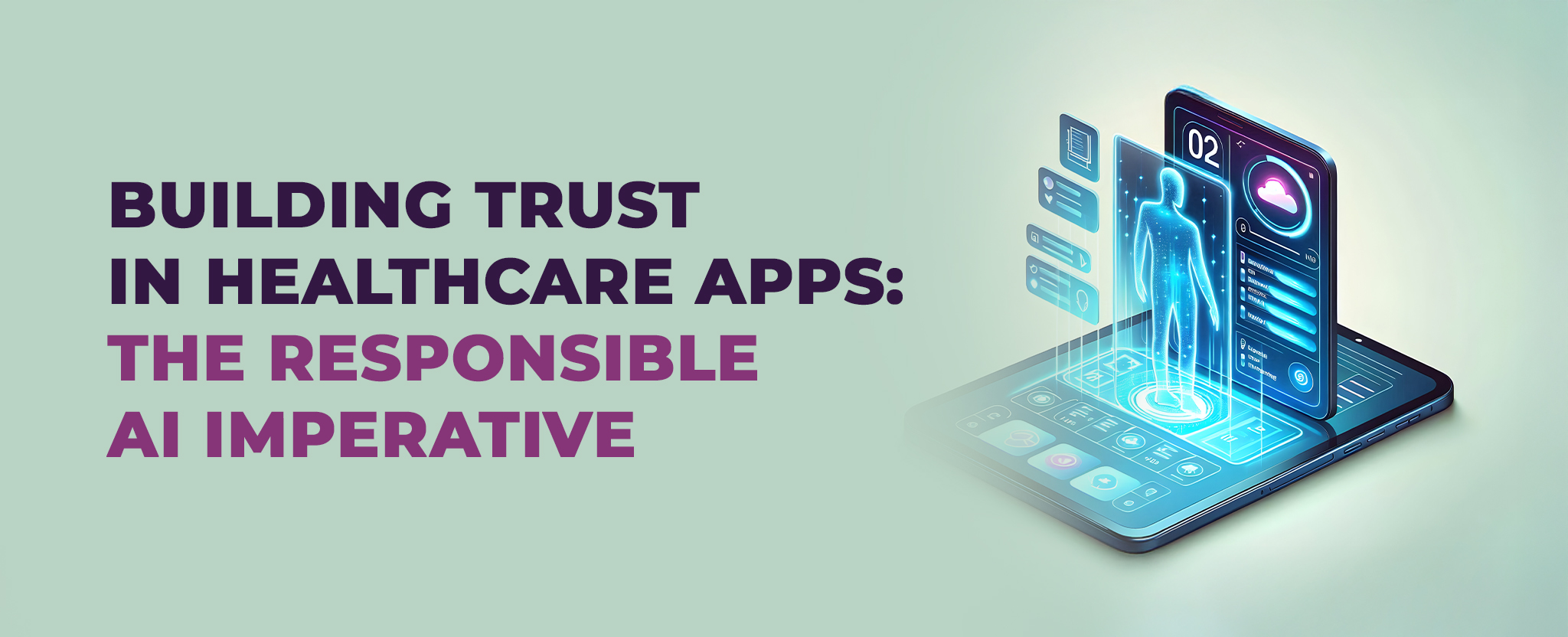
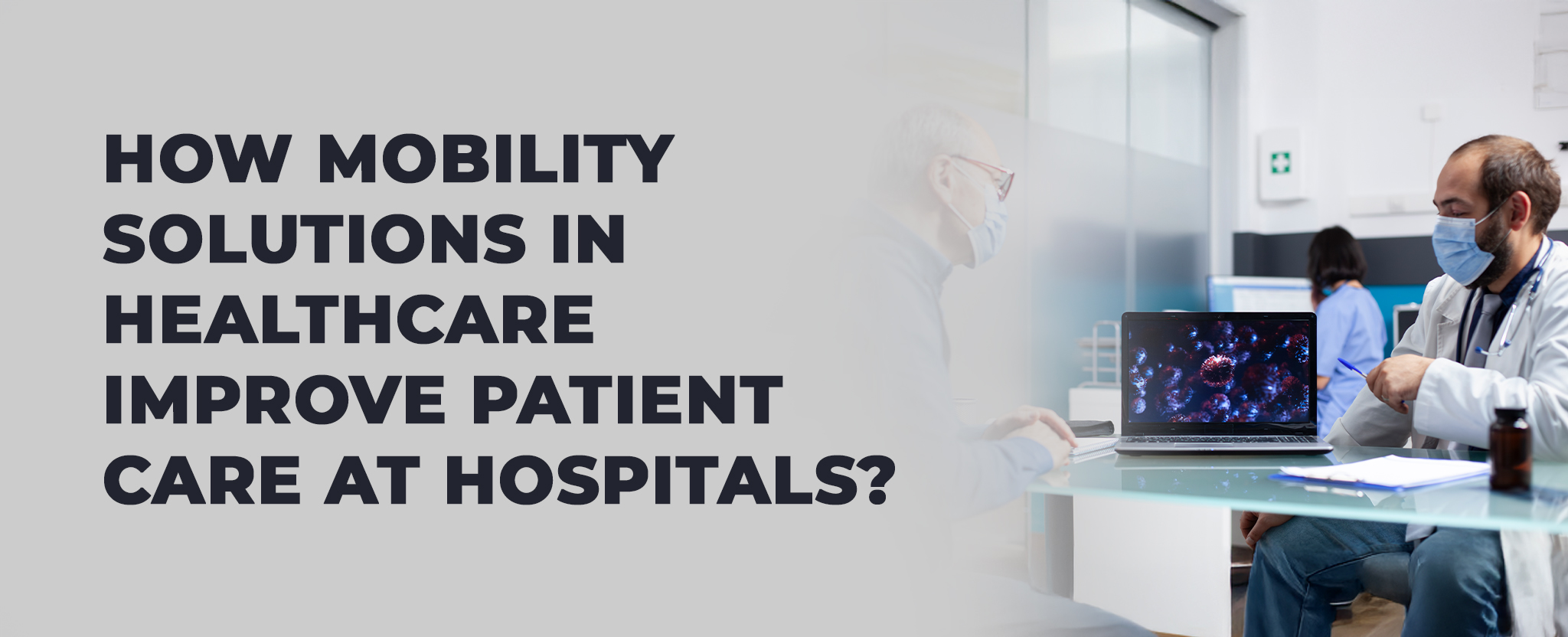
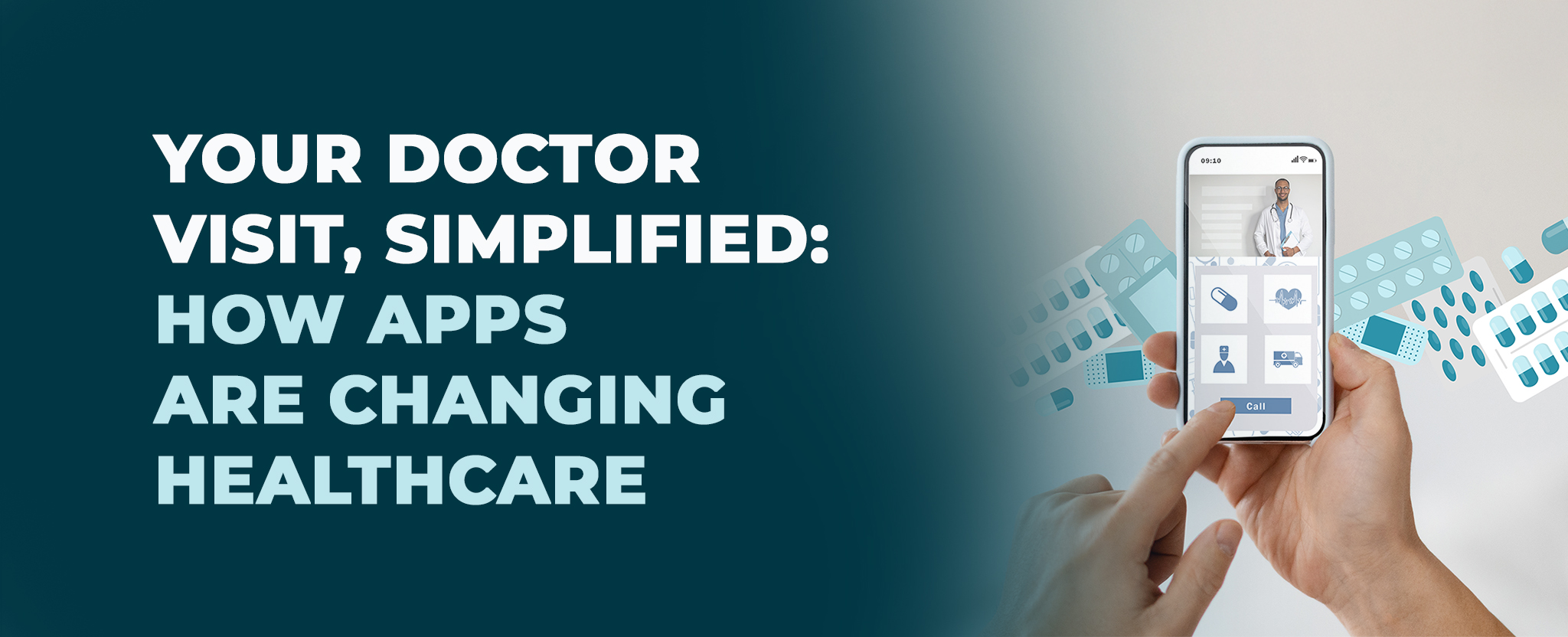
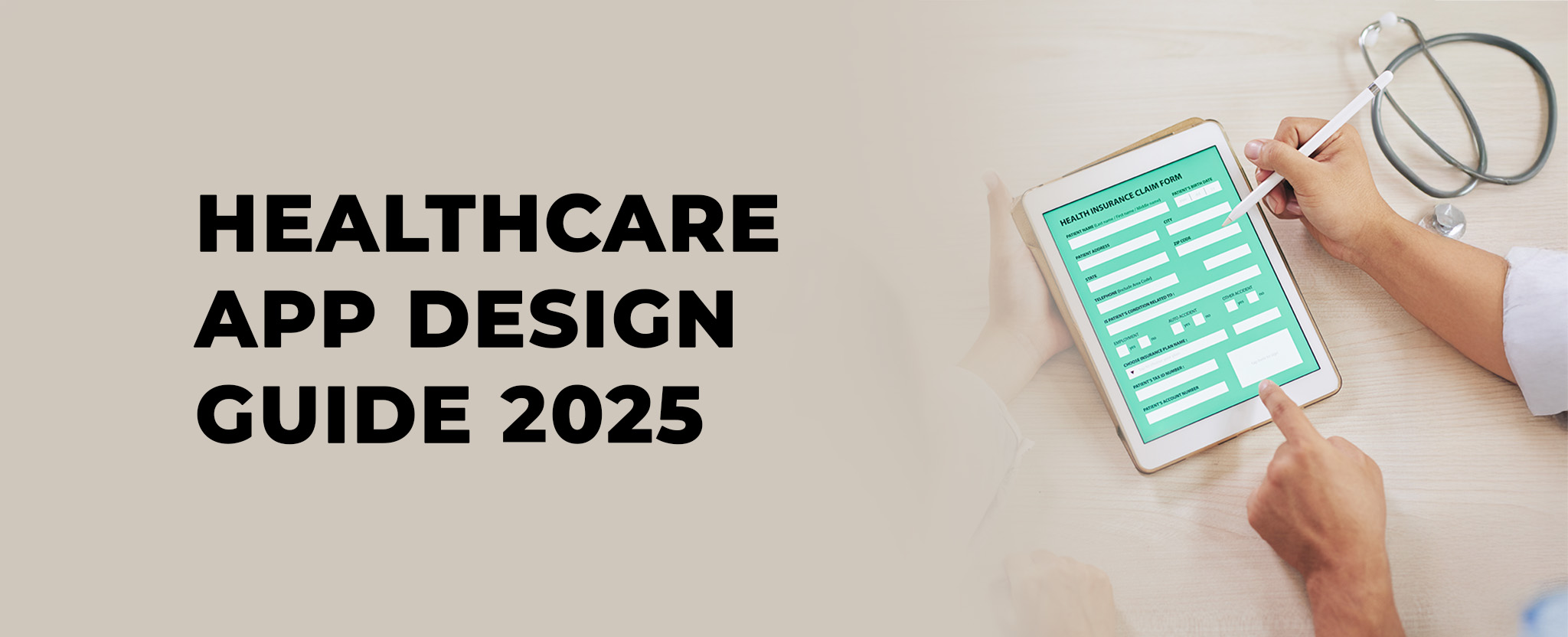






Comments